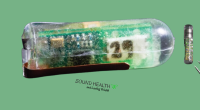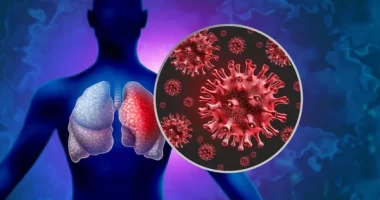New Research Reveals Link Between Ultra-Processed Foods and Head and Neck Cancer Risk – A recent study published in the European Journal of Nutrition has found that a diet high in ultra-processed foods (UPFs) is linked to an increased risk of developing oesophageal adenocarcinoma (OAC) and head and neck cancer (HNC).
UPFs are foods that have been manufactured using industrial processes and additives to make them more convenient, palatable, and shelf-stable. Examples of UPFs include packaged snacks, soft drinks, and ready-to-eat meals.
The study, which was conducted among over 450,000 participants in the European Prospective Investigation into Cancer and Nutrition (EPIC) cohort, found that people who consumed the most UPFs were at a 23% higher risk of developing OAC and a 24% higher risk of developing HNC.
The researchers also found that the association between UPF consumption and cancer risk was stronger in men than in women.
The study’s authors say that their findings suggest that people should limit their intake of UPFs and eat more whole, unprocessed foods.
However, they also caution that the study was observational, meaning that it cannot prove that UPFs cause cancer. More research is needed to confirm the findings and to understand the mechanisms by which UPFs may increase cancer risk.
Overall, the study provides some evidence to suggest that a diet high in UPFs may increase cancer risk. However, more research is needed to confirm the findings and to understand the mechanisms by which UPFs may increase cancer risk.
Key findings
- Consumption of ultra-processed foods (UPFs) was associated with a higher risk of oesophageal adenocarcinoma (OAC) and head and neck cancer (HNC).
- There was no evidence of heterogeneity across HNC subtypes.
- Males showed a stronger positive correlation between UPF consumption and HNC, compared to females.
- The associations between UPF consumption and OAC and HNC were not significantly explained by BMI or WHR.
- The results of the study should be replicated in other settings.
Strengths and Limitations
Strengths:
- Large sample size
- Long follow-up period
- Measured BMI and WHR
- Diverse sample due to multi-center design
- Use of different measures of UPF intake for comparability
- Reduced measurement error due to cancer case detection through registries
Limitations:
- Potential for residual confounding due to imprecisely measured confounders
- Limited availability of follow-up data on BMI and WHR
- Assumption that the relationship between UPF consumption and OAC risk is influenced by BMI and WHR through separate pathways may be incorrect
- Potential for random misclassification bias
Recommendations
- To minimize cancer risk, individuals are advised to prioritize whole, unprocessed foods over UPFs in their diet.
- Further research is warranted to confirm the study’s findings and investigate the specific mechanisms by which UPFs may contribute to cancer development.
Conclusions
The study provides some evidence to suggest that a diet high in UPFs may increase cancer risk. However, more research is needed to confirm the findings and to understand the mechanisms by which UPFs may increase cancer risk.
Other Conditions Ultra-Processed Foods Are Linked To
Ultra-processed foods (UPFs) have been linked to an increased risk of several chronic diseases, including:
Obesity: UPFs are high in calories, unhealthy fats, and added sugars, which can contribute to weight gain and obesity.
Type 2 diabetes: UPFs are often low in fiber and nutrients, and high in carbohydrates and unhealthy fats, which can disrupt blood sugar control and increase the risk of type 2 diabetes.
Cardiovascular disease: UPFs can contribute to cardiovascular disease by increasing blood pressure, cholesterol levels, and inflammation.
Certain types of cancer: UPFs have been linked to an increased risk of some types of cancer, including oesophageal adenocarcinoma (OAC) and head and neck cancer (HNC).
Mental health problems: Some studies have suggested that UPFs may be associated with an increased risk of depression and anxiety.
Gut health problems: UPFs can disrupt the gut microbiome, which can lead to a variety of health problems, including digestive problems, inflammation, and autoimmune diseases.
It is important to note that these are all potential links and more research is needed to confirm these associations and understand the underlying mechanisms. However, the evidence suggests that limiting UPF consumption and focusing on whole, unprocessed foods is important for overall health.
Now you are done reading ” New Research Reveals Link Between Ultra-Processed Foods and Head and Neck Cancer Risk”, kindly read the next;
RELATED:
- Study Finds Ultra-Processed Foods Up the Odds of Developing Multiple Health Problems
- Ultra-Processed Foods Are Addictive, Researchers Say
Continue to check our website soundhealthandlastingwealth.com for more articles of this kind. And, please use our comment section as well, we would love to hear from you.








